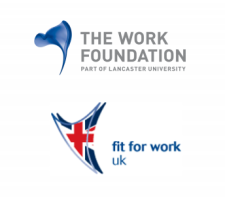February 25, 2015
Leading role for property sector in promoting ‘green infrastructure’ says UK-GBC
 The property industry can play a leading role in protecting and enhancing national features and biodiversity. That is according to a new report by the UK Green Building Council Task Group which presents the business case for “green infrastructure”, the term used to describe natural and semi-natural features ranging from street trees and roof gardens to parks and woodland. Demystifying Green Infrastructure finds that introducing green infrastructure into the built environment offers a range of business opportunities, including an increase in the value of land and property, as well as social and environmental benefits. Aimed primarily at developers and occupiers, the report also identifies risks from failing to incorporate adequate green infrastructure into projects, such as delays in planning, increased costs and reputational damage.
The property industry can play a leading role in protecting and enhancing national features and biodiversity. That is according to a new report by the UK Green Building Council Task Group which presents the business case for “green infrastructure”, the term used to describe natural and semi-natural features ranging from street trees and roof gardens to parks and woodland. Demystifying Green Infrastructure finds that introducing green infrastructure into the built environment offers a range of business opportunities, including an increase in the value of land and property, as well as social and environmental benefits. Aimed primarily at developers and occupiers, the report also identifies risks from failing to incorporate adequate green infrastructure into projects, such as delays in planning, increased costs and reputational damage.











 The world of work and the workplace is always changing. We know it. You know it. In fact, there are a whole host of people that know it, but depending on what side of the professional fence you sit on, you might approach it in different ways, looking through a different lens or with a specific focus. Or are you already bridging the professional gap? Workplace change and the numerous ramifications of it are well documented. In a world that is changing, at frightening pace, it is strange to think that many of the ways in which we work are so entrenched in 20th century thinking. We need to break away from this and outline what the future is going to look like and how we should adapt. Or do we already have the answers? This ground is well trodden. However, it could be time to reassess our thinking and the way we approach this challenge, ensuring it becomes the norm for organisations around the world.
The world of work and the workplace is always changing. We know it. You know it. In fact, there are a whole host of people that know it, but depending on what side of the professional fence you sit on, you might approach it in different ways, looking through a different lens or with a specific focus. Or are you already bridging the professional gap? Workplace change and the numerous ramifications of it are well documented. In a world that is changing, at frightening pace, it is strange to think that many of the ways in which we work are so entrenched in 20th century thinking. We need to break away from this and outline what the future is going to look like and how we should adapt. Or do we already have the answers? This ground is well trodden. However, it could be time to reassess our thinking and the way we approach this challenge, ensuring it becomes the norm for organisations around the world. There is now an unstoppable energy for radical change in the way that companies of all sizes conduct their Corporate Social Responsibility duties. There are compelling economic and social reasons for companies to construct new ways of thinking and practice around CSR that go way beyond just doing something worthy or nice, from building effective partnerships to attracting top employees. Some companies prefer terms like ‘corporate responsibility’, ‘corporate conscience’, ‘corporate citizenship’, ‘social performance’, ‘sustainability’ or even ‘future-proofing’ over CSR. But the core CSR principles are that a business voluntarily commits to embracing responsibility for its actions and to impacting positively on the environment, on society and on consumers, employees and other stakeholders.
There is now an unstoppable energy for radical change in the way that companies of all sizes conduct their Corporate Social Responsibility duties. There are compelling economic and social reasons for companies to construct new ways of thinking and practice around CSR that go way beyond just doing something worthy or nice, from building effective partnerships to attracting top employees. Some companies prefer terms like ‘corporate responsibility’, ‘corporate conscience’, ‘corporate citizenship’, ‘social performance’, ‘sustainability’ or even ‘future-proofing’ over CSR. But the core CSR principles are that a business voluntarily commits to embracing responsibility for its actions and to impacting positively on the environment, on society and on consumers, employees and other stakeholders. 







February 11, 2015
This isn’t a golden era for small business; it’s more interesting than that
by Mark Eltringham • Comment, Flexible working, Public Sector, Technology
(more…)